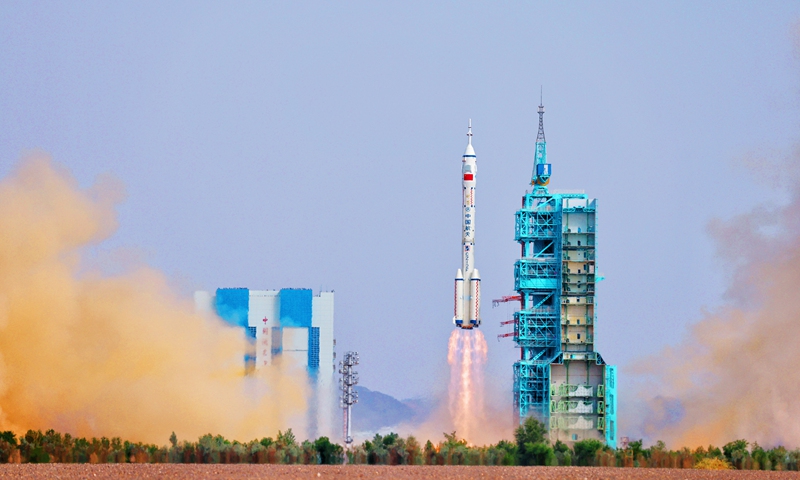Companies’ contribution to successful launch of Shenzhou-16 showcases China’s continuous technological advancement: experts

Photo: Zhang Jingyi
Chinese enterprises from a wide range of sectors devoted their efforts to support the successful launch of the Shenzhou-16 spacecraft on Tuesday, with experts attributing the support as sound proof of China's continuous advancement and progress in scientific and technological development in multiple industries.
Sichuan Province-based electrical appliances manufacturer Changhong provided several key components and devices such as control radars, the company said in a post on Tuesday.
The control radars have adopted unique tracking technology to achieve the stable tracking of targeted rockets even under strong ground clutter conditions, offering timely and accurate parameters and safely control information for Shenzhou-16's launch security control system, per the post.
It said that all Chinese space launch centers have been equipped with the specific type of radars.
China Unicom meanwhile backed up the launch through communications support. According to the company, it carried out all-round testing and evaluation of the network at the Dongfeng launch site in Jiuquan, Northwest China's Gansu Province.
For instance, it optimized parameters gained from180 base stations and expanded the LTE base station user-carrying capacity for the site, the company said on Tuesday.
The two are just a few of the Chinese enterprises actively contributing to the nation's scientific and innovative development.
Both the launch of the Shenzhou-16 and the C919's recent successful completion of its maiden commercial flight reflected China's comprehensive strength in scientific and technological development, with joint efforts from a variety of domestic enterprises, Liu Dingding, a Beijing-based tech industry observer, told the Global Times on Tuesday.
In addition to enterprises directly supporting technology and equipment, Liu noted that domestic firms from other sectors also made efforts, such as the catering industry providing more delicious dishes for taikonauts through dedicated technology, which showcases the progress made in different Chinese industries.
On Sunday, China's home-made C919 completed its maiden commercial flight from Shanghai to Beijing. The C919 single-aisle aircraft marks China's first self-developed large jet airliner made by Shanghai-based Commercial Aircraft Corp of China.
Wang Peng, a research fellow at the Beijing Academy of Social Sciences, highlighted the active participation of various and more Chinese enterprises as a representation of the sustainable development achieved for China's overall aerospace sector.
Following the continued efforts from domestic enterprises, especially with more private enterprises on board, Wang expected that the technological progress obtained in the aerospace industry will simultaneously drive the development of related sectors while tackling some bottleneck obstacles with future progress.
As more private enterprises participate in promoting the progress of China's aerospace sector, it will also boost the development potential for the commercial aerospace industry, Wang told the Global Times on Tuesday.
The localization rate of the Shenzhou-16 spacecraft has been further improved, with better operability, domestic news site ifeng.com reported.
The production of components was more centralized domestically, which enhanced the independent controllability of the aircraft. The instrument panel, meanwhile, was optimized, making it easier for taikonauts to operate.
Carrying three taikonauts, the Shenzhou-16 spacecraft was successfully launched onboard a Long March-2F carrier rocket at 9:31 am on Tuesday, marking the first manned space mission after China's space station entered its application and development phase.
